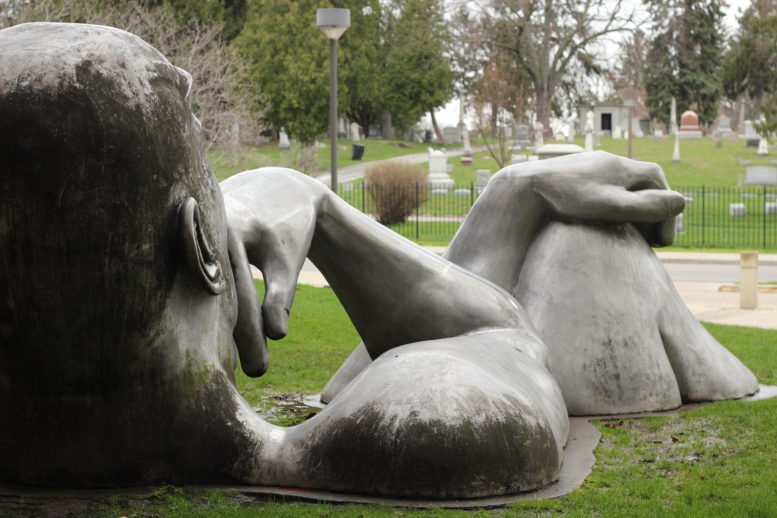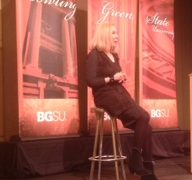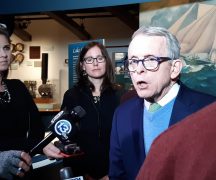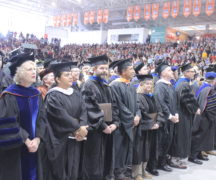By DAVID DUPONT
BG Independent News
Faculty are facing a daunting task as Bowling Green State University moves toward bringing students back to campus.
President Rodney Rogers said that in surveys students have shown a decided preference for face-to-face instruction. As the situation evolves, it is important that BGSU has options.
David Jackson, the president of the BGSU Faculty Association echoed that sentiment. “Students have indicated a strong preference for face-to-face learning and as much interaction with faculty as possible.”
That’s why they come to BGSU in the first place, and why they stay, he said.
A document spelling out expectations for fall makes that clear. While praising the faculty’s move to online instruction over spring break, the document states: “This fall, students and families will expect an enhanced experience across all modes of web-based instruction.”
Courses will be offered in hybrid, remote, or online formats.
Hybrid mixes face-to-face instruction with online instruction in real time, or “synchronous.” So, a course may meet with some or all students at the scheduled time, and online for other sessions. However, those hybrid classes must also allow students who are unable to attend face-to-face to participate either in real time or through a recording of the classes, or in an “asynchronous” mode.
“Remote courses primarily engage students through Webex and Canvas and mirror traditional face-to-face courses, though the instructor and students are not in a physical classroom.”
Again, those must also be available to students who cannot attend at the designated time. So, they would have to be recorded.
Online courses require no synchronous elements instead they “facilitate the three critical student interactions: with content, the instructor, and other students.”
Only courses that have already been approved for online instruction can be offered in that format this fall.
The document also says faculty should: “Maximize hybrid offerings for first- and second-year students where possible.”
Electives and other courses that students do not need to make progress toward graduation should be canceled. The document urges sections of courses be consolidated, while it states that courses with large enrollments will not be able to be accommodated.
And, the document states: “All courses should be designed to pivot to remote (synchronous) delivery on short notice if required due to COVID-19.”
“Well you know it’s a difficult situation, which I appreciate,” Jackson said. “It’s been a fairly messy process.”
Several committees, or task forces, have been formed to figure out how the fall semester will unfold. Jackson serves on a couple of them
But those task forces are more “implementors” than “deciders,” Jackson said.
“There’s a higher-level group of senior and central administrators who are actually making the choices of what we’re going to do.”
Members of the faculty want answers. They get missives from the administration taking a high-level view.
“Faculty have extremely practical questions,’ Jackson said. Some don’t even know what classes they are teaching. “Something as fundamental as a schedule is very much in flux.”
While the document spells out what the options are, faculty wonder what they’re real options are.
They are concerned how to keep themselves and their students safe in face-to-face classes.
Can a faculty member ask a student to leave if they refuse to wear a mask? How does the university plan to conduct contact tracing for those who contract the disease?
Those concerns are spilling out into faculty online forums.
On Monday morning Rogers and Provost Joe Whitehead will conduct a virtual town hall for faculty and staff, who will need to sign in using university credentials.
They are able to submit questions, yet, one faculty member said many are concerned about coming forward given the possibility of further cuts next year.
So, the professor has collected questions which will be posed at the virtual town hall.
Many questions address the nitty gritty of trying to teach in a time of the coronavirus pandemic.
Jackson estimated about a quarter of the faculty have asked for accommodations because of health concerns for the fall semester. That doesn’t mean they all want to teach online, Jackson said.
He asked for accommodations in terms of adequate PPE and other protections in the classroom as a way of reasserting the need for those.
“A lot of decisions are being made about reducing the size of classroom spaces or capacity, about purchasing PPE, about temp taking, about handwashing, plexiglass — lots and lots talk about plexiglass,” he said. But, “faculty don’t have any details yet.”





